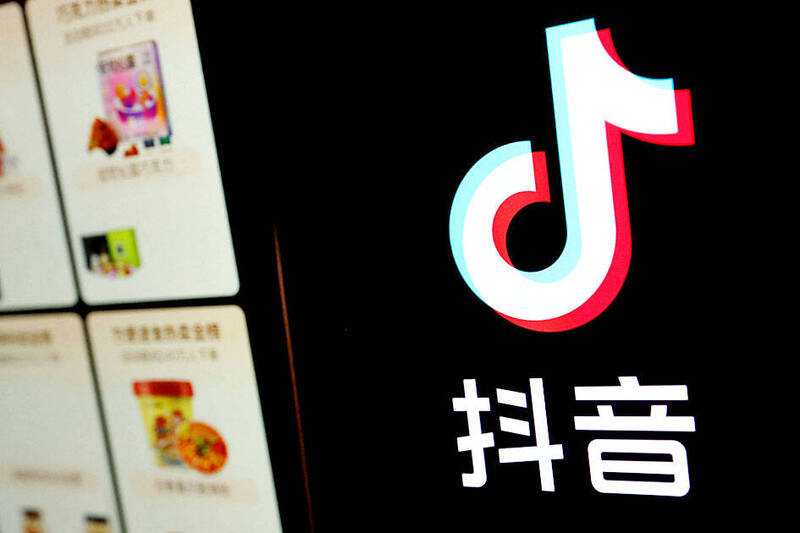《TAIPEI TIMES》 Fraud on Douyin up a lot in five years: officials

The Douyin logo is pictured next to a mobile phone displaying an e-commerce site on the app in an arranged photograph taken on Oct. 25 last year. Photo: Reuters
By Yao Yueh-hung and Sam Garcia / Staff reporter, with staff writer
Fraudulent activity on Douyin — the Chinese version of TikTok, run by the same parent company, ByteDance — has increased dramatically over the past five years, targeting people of all ages, officials said on Monday.
In 2019 only eight cases of fraud related to Douyin were reported to the National Police Agency’s (NPA) 165 anti-fraud hotline, agency data showed.
However, the case count has climbed rapidly, with 300 reported in 2020, 2,733 last year and 4,250 this year as of September, the data showed.
Fraudulent accounts on Douyin often post videos of investment “experts,” or attractive people singing and dancing to draw attention, the Criminal Investigation Bureau said, adding that the accounts contact people via the Line or WeChat messaging apps in attempts to defraud them.
The tactics include fake investment schemes, fake jobs to steal bank account information, fake shopping ads and even feigning friendship to sell game cards, the bureau said.
Although Douyin is generally considered to be favored by young people, there has been a significant rise over the past two years in the number of people over 80 being affected by scams on the social media platform, police said.
Douyin’s primary audience in Taiwan can be split into two groups: young people — encompassing children and teenagers — and elderly people, the Taiwan Network Information Center’s Taiwan Internet Report released last year said.
Mobile phones make it convenient and easy for elderly people, who are used to audiovisual content from television, to engage with short videos and be drawn into scams on Douyin, the report said.
Douyin also has a lot of “cognitive warefare” content aimed at brainwashing Taiwanese into recognizing the Chinese Communist Party regime, it said.
Some academics have suggested that Taiwan ban the app to eliminate the risk of fraud and curb ideological infiltration by Beijing.
新聞來源:TAIPEI TIMES













